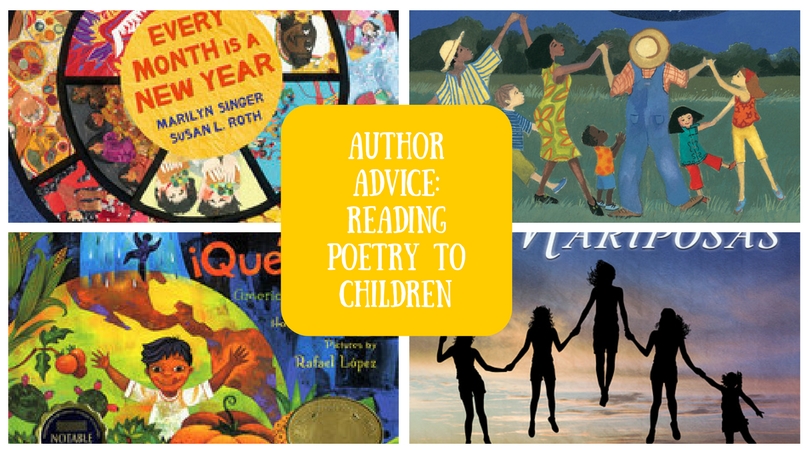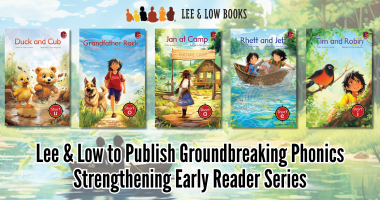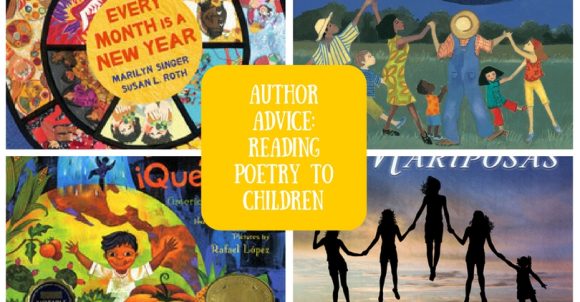
Since Poetry Month is in full swing, we asked some of our poets at Lee & Low Books to provide tips for reading poetry to kids and students. Read suggestions from Pat Mora, author of Yum! ¡Mmmm! ¡Qué Rico! Americas’ Sproutings; Confetti: Poems for Children (Confeti: Poemas para niños); and upcoming title Bookjoy, Wordjoy, listen to the wisdom of Marilyn Singer, author of A Full Moon Is Rising and upcoming title Every Month Is a New Year, and find the passion with Guadalupe García McCall, author of Under the Mesquite, Summer of the Mariposas (El verano de las mariposas), Shame the Stars, and upcoming Fall title All the Stars Denied, when reading poetry to kids.
“Children love poetry–especially when it’s read to them by an enthusiastic family member. What about encouraging every reading member of the family to share at least one poem before dinner during April?” —Pat Mora
“I write many kinds of books, but poems are my favorite things to write. I’m on a mission to get more people to appreciate it. And that starts with parents and with teachers reading poetry themselves and then reading it aloud to kids. Poetry demands to be read aloud. Listen to recordings and podcasts and watch videos of poets and performers reading and learn to read with feeling. Encourage your local school or library to sponsor readings by poets writing for children, and attend them with your kids. Seek out lots of different kinds of poetry to find out what you and your kids like. When you read, don’t rush through the words, but be lively, thoughtful, whatever sentiment the poem calls for. Feel free to talk about what a poem means to you and let your kids tell you what it means to them, but don’t overanalyze it. Enjoy the rhythm, the rhyme (if it does rhyme), the form, the emotions. Read it aloud together if you can. Sing it!” —Marilyn Singer
“Open your mind and listen to the rhythm of your heartbeat, then read the words out loud to your child with the uniqueness of your own lilt and inflection. Every person has their own special poetic voice. Don’t worry about the pronunciation or the enunciation of words. We wrote these poems from the bottom of our own hearts. They come from the same place you are visiting when you are reading to your children. Listen to the words on the paper. They will whisper their names to you. They will show you the way.” —Guadalupe García McCall
Further Reading for National Poetry Month:
Book List: 5 Favorite Bilingual Poetry Books
4 Mentor Texts and Activities for National Poetry Month
Interview: Nikki Grimes on Writing Poetry
Do you have any tips for reading poetry aloud? Share them in the comments below!









